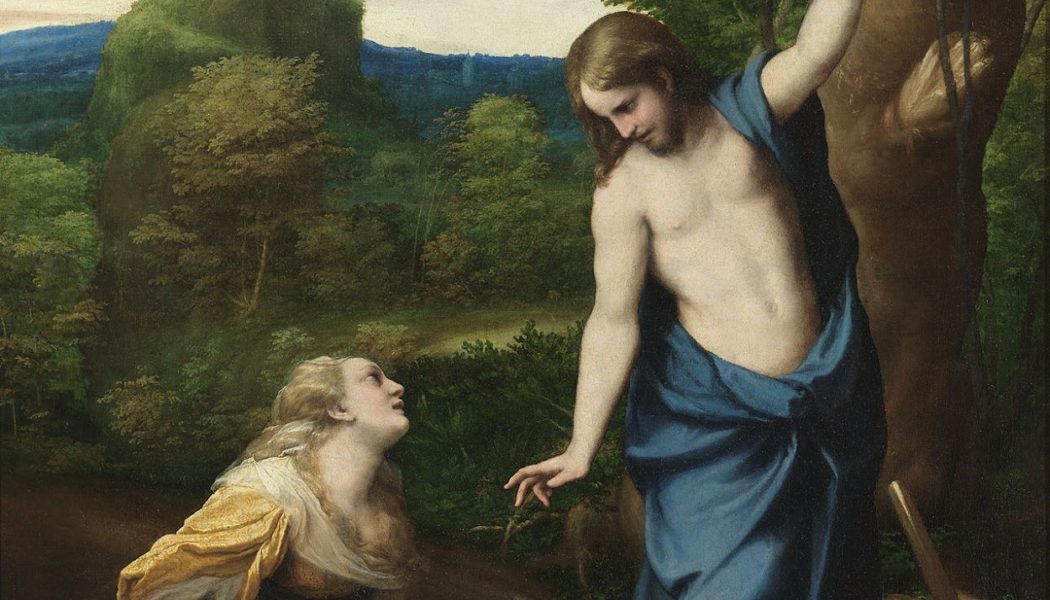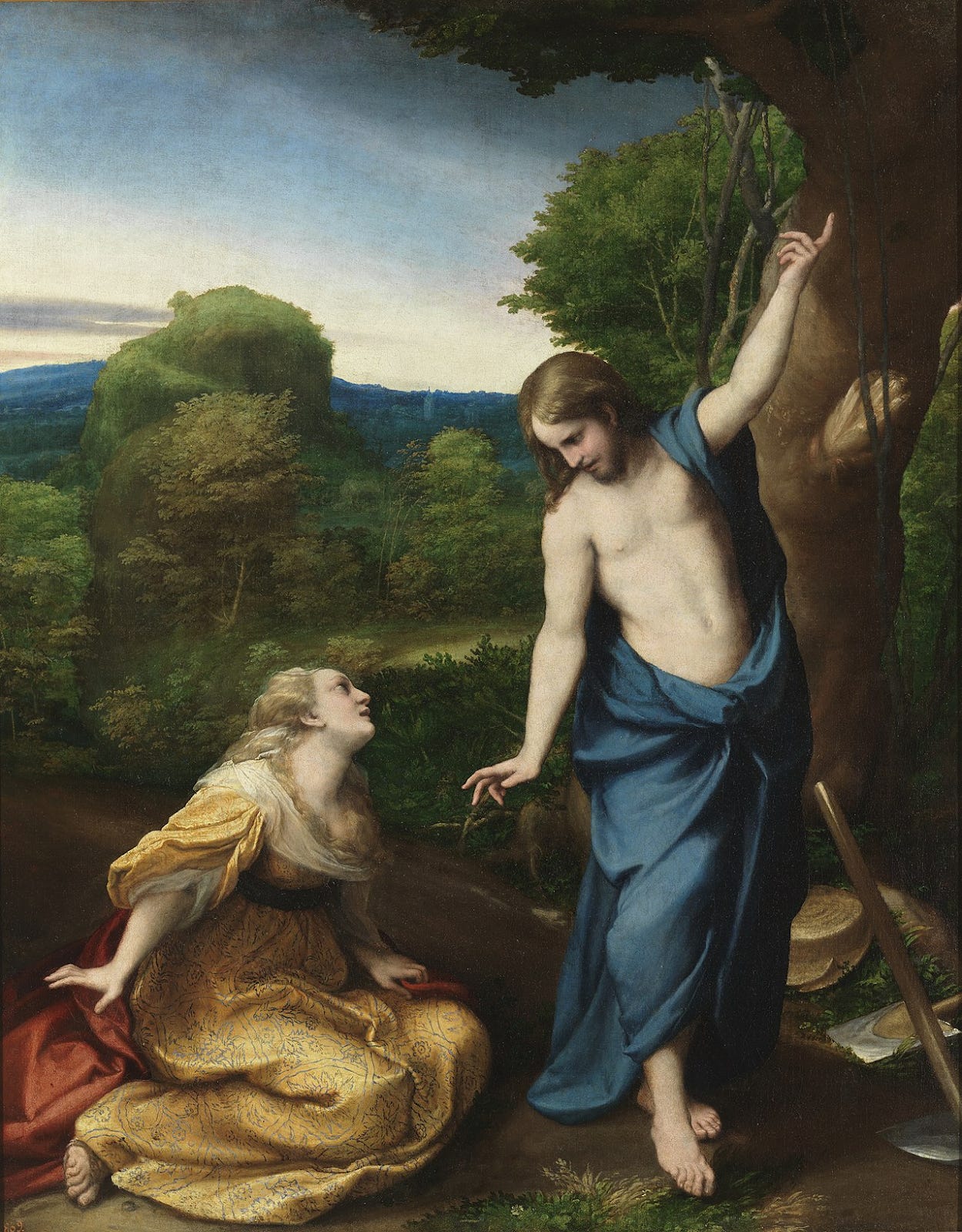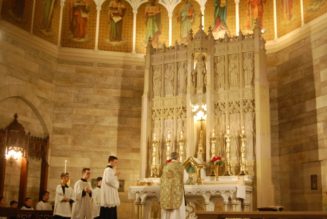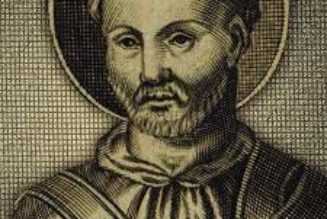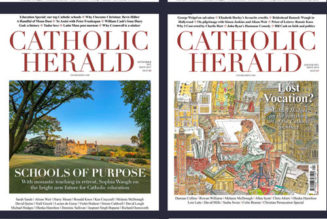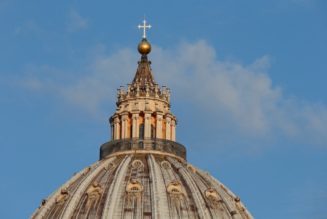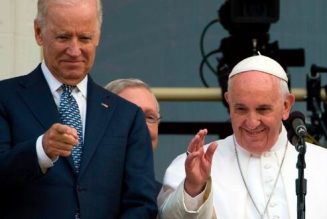Hey everybody,
What a gift!
For me at least, it was a gift to experience the liturgies of the Triduum, a gift that thousands of people entered the Church at Easter, and a gift to renew my own baptismal promises, as my children and Mrs. Flynn renewed theirs.
When the liturgy tells us to renew our baptismal promises, it might not seem like a big deal.
But that renewal is a recommitment to our call and obligation to live as Christians, to “work so that the divine message of salvation is made known and accepted by all persons everywhere in the world,” as canon 225 puts it.
In our family, the octave of Easter is a good time to actually assess whether we’re living that — what work we’re actually doing for the proclamation of the Kingdom, and what God might be calling us to.
For clerics, and people who make liturgies happen, though, the octave of Easter is probably best thought of as a time to nap, eat, and recover from the marathon of the Sacred Triduum. Congratulations, guys, you did it!
But get ready, at least if you’re a bishop, or his liturgical m.c., because after Easter you’ve got only a short break before the start of the “tion” season — you’ve got the pre-summer marathon of confirmations, ordinations, and graduations coming down the pike, and you’ll be probably be hitting the road for that pretty soon.
—
The news
The Pillar has been closed since Holy Thursday morning, so we’ve got less news here to recap than we usually do. But here’s what we’ve reported this morning, and what we had before closing up shop:
First, the Dicastery for the Doctrine of the Faith is set to publish next Monday Dignitas infinita, a long-promised document on human dignity, which Cardinal Victor Fernandez says will be much less controversial than last year’s Fiducia supplicans.
But what might be in the new declaration? What might it draw from?
The Pillar brings you a great preview.
The backstory is this: while his church is headquartered in Baghdad, Cardinal Sako has been living in Kurdistan since last year, because the country’s president issued a decree that revoked civil recognition of Sako’s position as leader of the Chaldean Catholic Church.
Why? If you ask the Chaldeans, it’s because Sako has spoken out against Rayan al-Kildani, an Iran-backed militia and political leader in Iraq — who was placed on a U.S. sanctions list for allegedly cutting off a handcuffed detainee’s ear — and who has claimed to represent the country’s Chaldean minority.
The U.S. Treasury Department says that al-Kildani is a well-armed criminal thug
And Sako says that he’s trying to steal the Church’s property and assets in Iraq. That effort seems to have gotten at least some traction with the Iraqi government.
So Sako is in a kind of self-imposed exile, and the Chaldeans told the government that its customary Easter festivals, and parties for government officials, are off the table — trying to call attention to the bad situation in which the Chaldean Church finds itself.
Did it work? Probably not. The Iraqi government is not facing much pressure to address the situation, and the protest cancellation didn’t gain much attention.
But what else are the Chaldeans supposed to do? Read all about it.
In Belgium, the numbers of adults being baptized are also on the rise, with almost 400 adult baptisms this Easter. That’s a big jump from the typical number.
The adult baptisms in Belgium and France don’t make up for the precipitous decline in infant baptisms in the same countries — and the increasing share of “nones” making up the populations there.
But there might be something to learn from the adult baptisms. After all, more than 78,000 adults in France decided to become Catholic in the past 23 years. The French bishops, if they’re serious about a “new evangelization” in their country, would do well to study the reasons.
Lamplighter Designs is a web design and communications studio that builds custom websites and communications strategies for Catholic and institutional entities. Lamplighter works with parishes, schools, charities, pro-life entities and more to build better, more evangelization-oriented web presences. Visit their website to learn more and schedule a free discovery call.
But the situation at Don Bosco Church in Buizingen is strange, because while the archdiocese suppressed the parish, it said that the community would retain some ecclesiastical identity, which it analogized to an ecclesial movement.
If you’re thinking that doesn’t make sense — well, it’s not exactly clear to us what the archdiocese is trying to do either, or even which canonical entity now owns the former parish church.
The history of the place is interesting — its longtime pastor is the author of a well-known book in Belgium urging a “parish without a pope.”
The archdiocese has insisted that “by allowing its operations to evolve from a parish to an independent religious community, [Don Bosco’s] is given space to continue its activities, like other movements or organizations in the Church.”
But the “practical effects of that decision” have yet to be enumerated, the archdiocese says.
So what’s going to happen? Does this set a precedent? What does it even mean?
Here’s what The Pillar is able to ascertain — and a delineation of the unresolved governance issues at play.
—
The Pillar broke the news last week that English Bishop Declan Lang was under an unannounced Vos estis lux mundi investigation when he was allowed to resign his office March 14.
The investigation was seemingly the reason for his early resignation from the Diocese of Clifton.
Lang was being investigated because he failed to investigate allegations of improper “physical contact” made several years ago by seminarians against a Clifton priest, Canon Christopher Whitehead.
In fact, according to sources close to the case, Lang failed even to note the allegations in Whitehead’s personnel file — which means that when the Vatican appointed Whitehead a bishop last year, it had no idea that he had previously been accused of misconduct.
Whitehead himself has been investigated in recent months, and while he’s not on track to become a bishop anymore, he has been returned to parish ministry.
But the consequences for Lang seem to have been far more serious, and hastened his resignation from office.
Still, despite promises of transparency from the English episcopate in recent years, there have been, as yet, no public statements explaining why the bishop resigned from office, or confirming the Vos estis investigation into Lang — and the diocese has declined to comment.
You can only read about it at The Pillar, in fact.
And if you think public accountability matters and transparency matters — or you’re concerned that bishops are permitted to resign while under investigation with no public consequences — well, you should be a subscriber to The Pillar. We’re the only Catholic publication in the world committed to serious and ongoing investigation on this front. It matters for the life of the Church, and it depends on you. That’s right — you.
—
Next, The Pillar reported last week on a centuries old pilgrimage walk through Amsterdam, which commemorates a Eucharistic miracle 700 years ago.
The Pillar’s Edgar Beltran was on the scene, as pilgrims processed silently past rowdy bars and pulsing nightclubs, through Amsterdam’s “red light district,” and by gawking tourists, praying for conversion in a country with a declining number of religious believers.
One bishop told The Pillar that the “Silent Walk” pilgrimage is a fitting Lenten exercise.
The walk, he said, “reminds me of Jesus. When He was carrying his cross He must have felt lonely while people insulted Him. Still, He did this all out of love for us, for sinners.”
“This is what we should do as well: we walk there in silence, not taking part in that nightlife we see around us, but praying with love for those people and hoping they will discover the true meaning of their lives.”
Don’t miss this beautiful report.
—
Finally, I forgot to commend to you last week my podcast interview with Francis Maier, longtime aide to Archbishop Charles Chaput, and the author of “True Confessions,” a new book that interviews Catholics from across the country, to take a snapshot of the life of the Church.
In full disclosure, I was interviewed for the book, and Fran has been a friend of mine for a long time. But our conversation was a really interesting one, which I think could be helpful to anyone working — or even living — in and around the culture of the Church in the United States.
—
Being ‘Easter people’
With the Triduum over, we at The Pillar are getting back to work, with a lot to report on right now, and a new Vatican document looming.
Luke Coppen is on vacation this week, which means that Starting Seven won’t be coming to your inboxes.
But before I jump into my own reporting duties this week, I’ve got an observation about Easter.
If you’re a believer, you know that Easter is the highest liturgicsal feast we celebrate, because the resurrection is the single most important thing ever to happen.
At the Incarnation, which we celebrate on Christmas, God made manifest a long-awaited promise to come among us and set us free. At Easter, Jesus Christ defeated death itself, in such a way that we can share in God’s own life — in the mystery of the Trinity — by our definitive incorporation into his resurrection.
Promise made. Promise fulfilled.
Easter is everything, even if it’s hokey when people say things like “We are an Easter people” to describe the Church.
But Easter has almost no cultural grab in the United States at all. I thought about this over the Triduum, when I was shocked to discover that the public school around the corner was in session on both Good Friday and Easter Monday.
While Christmas is diluted and universalized into a holiday about sharing and togetherness and hope and stuff, Easter really isn’t. The myth about the Easter Bunny doesn’t loom that large in our cultural imagination; he is way less popular than Santa Claus, even if James Marsden’s “Hop” is an objectively better movie than anything in Kurt Russell’s “Christmas Chronicles” series.
Also, while Christmas is fixed on the universal calendar, Easter moves around, which means that among people who haven’t been suffering through 40 days of Lent, few might even remember that Easter’s on its way. (despite the best efforts of Gene Autry and Peter Cottontail)
The idea of an “Easter egg roll” is not the stuff of holiday carols. Plus, people don’t really like ham or hard-boiled eggs that much, meaning Christmas inevitably has better food traditions. So while lots of people “love Christmas” because they like peppermint flavored coffee or boozy desserts in their pajamas, it’s pretty unusual for most Americans to come across an adult who is giddy with anticipation about Easter — unless that adult is actually a disciple of Jesus Christ.
Ultimately, Easter doesn’t have Christmas-level cultural cachet because you really can’t dilute it into a sentimentally vague family celebration. It doesn’t lend itself very well to moral therapeutic deism — even if that’s what a lot of occasional churchgoers say they’re looking for.
In truth, you can only talk about Easter by confronting the reality of the Resurrection of Jesus.
So while people like having brunch and buying flowers and hiding eggs for kids, the holiday presents a challenge, because it is definitively a Christian holiday. Christmas is too, obviously, but people have found a way to talk about the “true meaning of Christmas” while meaning something gauzy, insipid, and sentimental — and that messaging coup hasn’t really happened for Easter.
Sure, some people talk about Easter with some secularist bromides about the holiday as a celebration of “new life,” but I don’t think that’s an especially compelling narrative, and the Hallmark Channel isn’t making a month’s worth of movies about it.
Lots of people celebrate Christmas without really believing in the Incarnation. Fewer bother to go all out for Easter without really believing in the Resurrection. That makes it a second rate holiday in the American popular imagination — and I think its status is going to slip even further in the years to come.
I expect — and you should too — that as America secularizes, even the limited Easter observances we see now will diminish across our cultural landscape.
That might be a good thing. While cringy culture wars loom about store clerks saying “happy holidays” instead “Merry Christmas” in December, Easter doesn’t have that baggage either.
It’s an unusual situation — the most important day in history, and for most of America, it doesn’t even warrant a three-day weekend.
But it seems to me this a tremendous evangelization opportunity. If Easter is just a weird blip in the calendar for most people, and an eight-day celebration of parties and feasting for us, well, that stands out. If our lives are completely animated by a day that most people kind of forget, it says our faith is a living and real experience, which makes us different in ways worth explaining.
In short, as fewer people pay attention to the Paschal feast, becoming serious about living as an “Easter people” is an actual opportunity for evangelization. But we need to actually live it — we need to make the octave the real center of our year, really, a festal sign of contradiction.
So let’s keep at it.
Happy Easter, guys. He is truly risen.
Yours in Christ,
JD Flynn
editor-in-chief
The Pillar
Lamplighter Designs is a web design and communications studio that builds custom websites and communications strategies for Catholic and institutional entities. Lamplighter works with parishes, schools, charities, pro-life entities and more to build better, more evangelization-oriented web presences. Visit their website to learn more and schedule a free discovery call.
Comments 26
Services Marketplace – Listings, Bookings & Reviews
